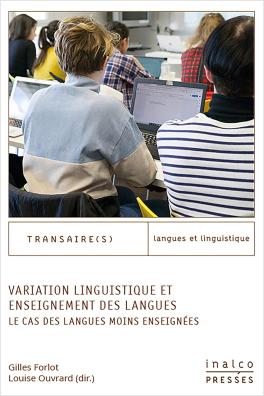
Linguistic Variation and Language Teaching
The case of less-taught languages
Series : TransAire(s)
Subject : Languages and linguistics
25 €
Presentation
The term “less-taught languages” refers here to what are known in French as “MoDiME” (less widespread and less taught) languages. These “rare” languages do not fit into any of the predesigned categories used by educational institutions. This book therefore aims to analyse their statuses in educational systems and to look at the issue of linguistic variation in their teaching and learning. The teaching of modern foreign languages is often designed around a fictitious “standard”: the legitimate language to teach or learn. From Asia to the Americas, and in many African and European countries, educational policy-makers and teachers themselves have to handle this phenomenon which, above and beyond purely pedagogical questions, contributes to forming a hierarchy of language forms.
Editors
Gilles Forlot is a professor of sociolinguistics and language instruction at Inalco.
Louise Ouvrard is a senior lecturer and heads the Malagasy studies section at Inalco.
320 pages
16 x 24 cm
Publication: 03/12/2020
ISBN: 9782858313730